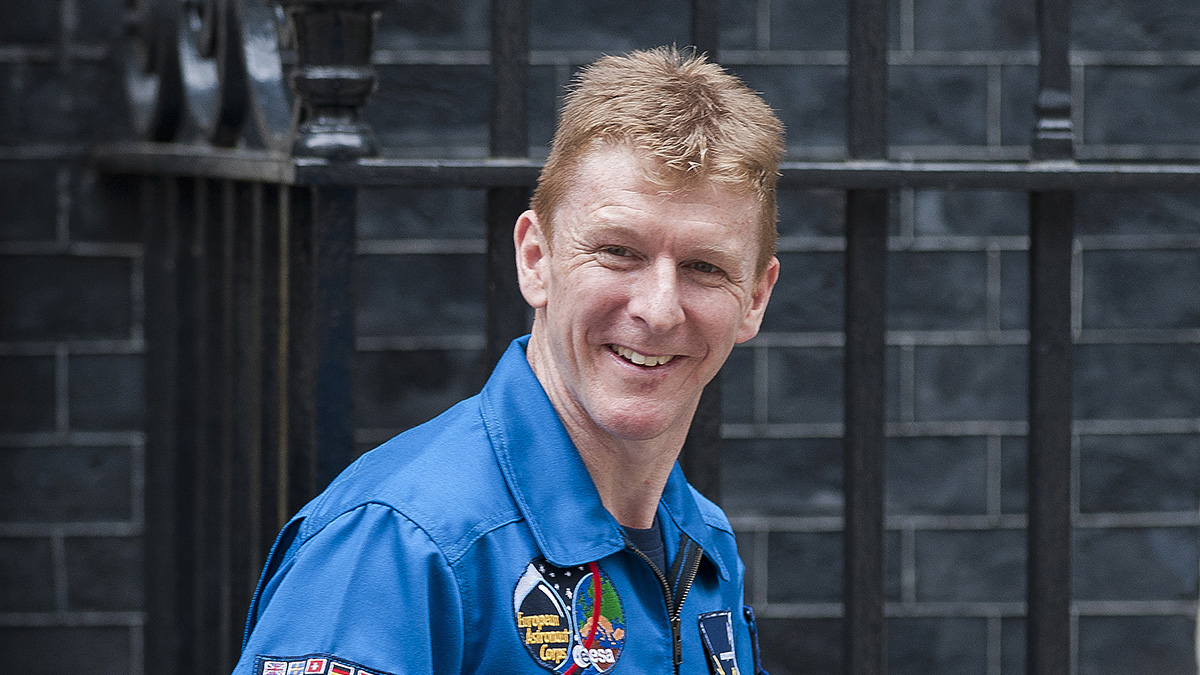Britons in space: how do I become an astronaut?
The UK has reversed its policy of unmanned space missions, meaning Britons can now become astronauts

A free daily email with the biggest news stories of the day – and the best features from TheWeek.com
You are now subscribed
Your newsletter sign-up was successful
After decades of unmanned space exploration, the British government has announced a new strategy to get Britons to the International Space Station and beyond.
The UK has historically taken a pragmatic approach to space, preferring more cost-effective robotic operations and commercial satellite missions to those involving astronauts.
Now, however, science minister Jo Johnson has signalled a change to that policy.
The Week
Escape your echo chamber. Get the facts behind the news, plus analysis from multiple perspectives.

Sign up for The Week's Free Newsletters
From our morning news briefing to a weekly Good News Newsletter, get the best of The Week delivered directly to your inbox.
From our morning news briefing to a weekly Good News Newsletter, get the best of The Week delivered directly to your inbox.
"From new advances in healthcare to getting our young people really excited about science, human spaceflight has the potential to deliver a huge range of benefits here on Earth," said Johnson.
Tim Peake of Chichester, a former army helicopter pilot, will be the first Briton to benefit from the policy shift, with his November mission to the International Space Station fully financed by the UK government.
After Peake returns, other British citizens are expected to follow, The Times reports. So what does it take to be an astronaut?
Brains
A free daily email with the biggest news stories of the day – and the best features from TheWeek.com
According to Nasa's list of astronaut requirements, the first qualification all astronauts need is a bachelor's degree from an accredited institution in engineering, biological science, physical science, or mathematics. The US space agency says that it prefers advanced degrees and that "quality of academic preparation is important".
Fitness
As well as education, Nasa looks for physically fit candidates for its astronaut programme, with blood pressure at 140/90 measured in a sitting position. Prospective commanders or pilots must also have good eyesight, with vision no worse than 20/100, correctable to 20/20 in each eye.
Height
People who are either too tall or too short need not apply to become an astronaut. Nasa pilots must come within a height range of 5'1" and 6'2" and mission specialists (those astronauts with duties that generally do not include flying) must be between 4'9" and 6'3".
Experience
Nasa pilots must also have more than 1,000 hours of flight time under their belt before applying to the agency's recruitment program.
Nasa will also sometimes seek people with specific training required for a particular mission, which it calls "payload specialists". These astronauts may have different experience to astronauts who have been been put through Nasa's official astronaut candidate program, but they must still meet many of the same physical requirements.
-
 Bad Bunny’s Super Bowl: A win for unity
Bad Bunny’s Super Bowl: A win for unityFeature The global superstar's halftime show was a celebration for everyone to enjoy
-
 Book reviews: ‘Bonfire of the Murdochs’ and ‘The Typewriter and the Guillotine’
Book reviews: ‘Bonfire of the Murdochs’ and ‘The Typewriter and the Guillotine’Feature New insights into the Murdoch family’s turmoil and a renowned journalist’s time in pre-World War II Paris
-
 Witkoff and Kushner tackle Ukraine, Iran in Geneva
Witkoff and Kushner tackle Ukraine, Iran in GenevaSpeed Read Steve Witkoff and Jared Kushner held negotiations aimed at securing a nuclear deal with Iran and an end to Russia’s war in Ukraine
-
 NASA’s lunar rocket is surrounded by safety concerns
NASA’s lunar rocket is surrounded by safety concernsThe Explainer The agency hopes to launch a new mission to the moon in the coming months
-
 Nasa’s new dark matter map
Nasa’s new dark matter mapUnder the Radar High-resolution images may help scientists understand the ‘gravitational scaffolding into which everything else falls and is built into galaxies’
-
 Moon dust has earthly elements thanks to a magnetic bridge
Moon dust has earthly elements thanks to a magnetic bridgeUnder the radar The substances could help supply a lunar base
-
 How Mars influences Earth’s climate
How Mars influences Earth’s climateThe explainer A pull in the right direction
-
 The ‘eclipse of the century’ is coming in 2027
The ‘eclipse of the century’ is coming in 2027Under the radar It will last for over 6 minutes
-
 NASA discovered ‘resilient’ microbes in its cleanrooms
NASA discovered ‘resilient’ microbes in its cleanroomsUnder the radar The bacteria could contaminate space
-
 Artemis II: back to the Moon
Artemis II: back to the MoonThe Explainer Four astronauts will soon be blasting off into deep space – the first to do so in half a century
-
 The mysterious origin of a lemon-shaped exoplanet
The mysterious origin of a lemon-shaped exoplanetUnder the radar It may be made from a former star